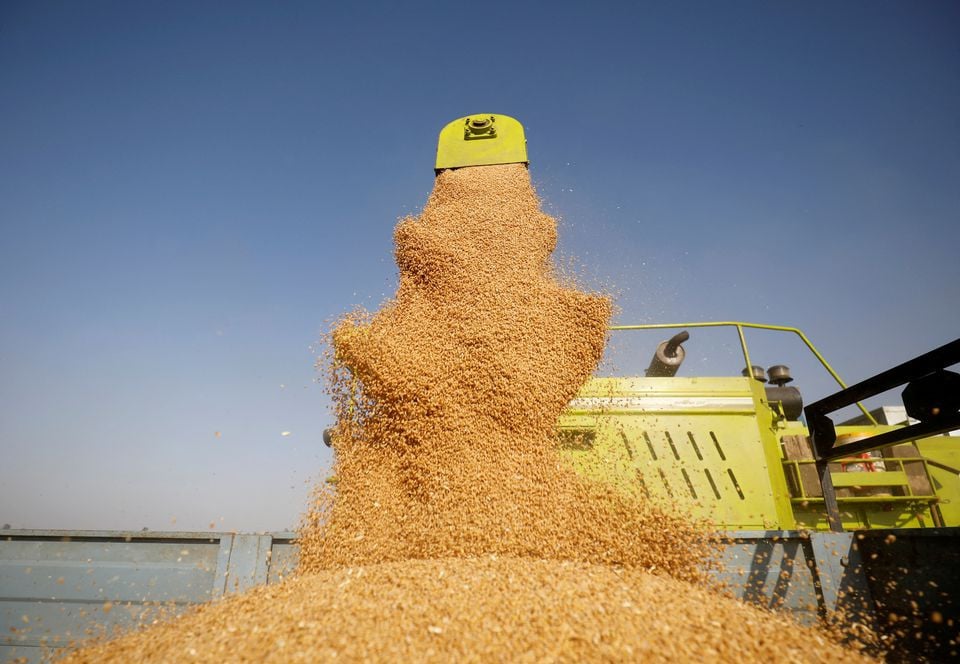
Given the present situation, experts are urging the government to establish a uniform support price for wheat as sowing season has already begun in Sindh. “Special arrangements must be made for the sowing of the Rabi crops, particularly the cultivation of wheat in flood-hit areas across the country.
Wheat is a major cash crop and a vital source used to fulfil the dietary needs of the local population,” said Ahmad Jawad, CEO of the Pakistan Businesses Forum (PBF). “The recent floods have damaged more than eight million acres of crops and inflicted losses of over Rs320 billion,” he added. “The farmers were already burdened with inflationary pressures as a result of higher fertiliser and fuel prices these past 12 months.
The floods have piled on to their misery, destroying crops, cattle, infrastructure and farmland,” noted Waqas Ghani Kukaswadia, Analyst at JS Global agriculture. “The primary agricultural infrastructure of farmers, like tube wells, storage, seed stocks, fertiliser inventory, various agriculture machinery and equipment, have all been damaged. These losses will result in reduced farmer income and it will take months to restore the damaged infrastructure,” he added.
“Most of Sindh and Southern Punjab are still under water. Although restoration work is in progress, and the government claims that 50% of the water has receded, it will likely take some time for the water to drain given Sindh’s flat topography. In a lot of areas, farm boundaries have also disappeared, and will need to be redrawn. Some of the land will also have lost its topsoil, which will prevent planting in the upcoming cycle,” explained Kukaswadia.
The PBF CEO elaborated that the “provincial cabinet of Punjab has announced the support price of wheat at Rs3,000 per 40 kilograms, but the governments of Khyber-Pakhtunkhwa and Balochistan have yet to make an announcement. On September 11, the provincial cabinet of Sindh announced the support price of wheat at Rs4,000 per 40 kilograms”.
He feared that the “recommendation of the Sindh government is expected to have multi-dimensional effects and is likely to increase food inflation and the Pakistan Agricultural Storage and Services Corporation (PASSCO) may not be able to procure wheat from Sindh.” “The cost of production for an average farmer stands at Rs2,495 per 40 kilograms. However, we have to consider that wheat is the staple crop that ensures food security of the country.
It is cultivated over 22 million acres and accounts for 8.9% of the value added in agriculture and 1.6% of the Gross Domestic Product (GDP),” he emphasised. “In terms of wheat availability this year, we are at a similar position as compared to last year,” noted Abdullah Umer Khan Lodhi, Agriculture Analyst at Ismail Iqbal Securities. “So far, estimates from the Ministry of Food and Research, and other government estimates, suggest that we have lost 463,000 tons of stored wheat – approximately 411,000 tons in Southern Punjab and 52,000 tons in Sindh,” he added. “I
n terms of availability, we might witness a tight market towards the end of year which may result in further hike in flour prices,” predicted Lodhi.

1732090022-0/Elmo-and-Amelia-(1)1732090022-0-405x300.webp)
1725523665-0/Minecraft-Movie-(1)1725523665-0-165x106.webp)

1732089759-0/BeFunky-collage-(75)1732089759-0-165x106.webp)


1732084432-0/Untitled-design-(63)1732084432-0-270x192.webp)










COMMENTS
Comments are moderated and generally will be posted if they are on-topic and not abusive.
For more information, please see our Comments FAQ